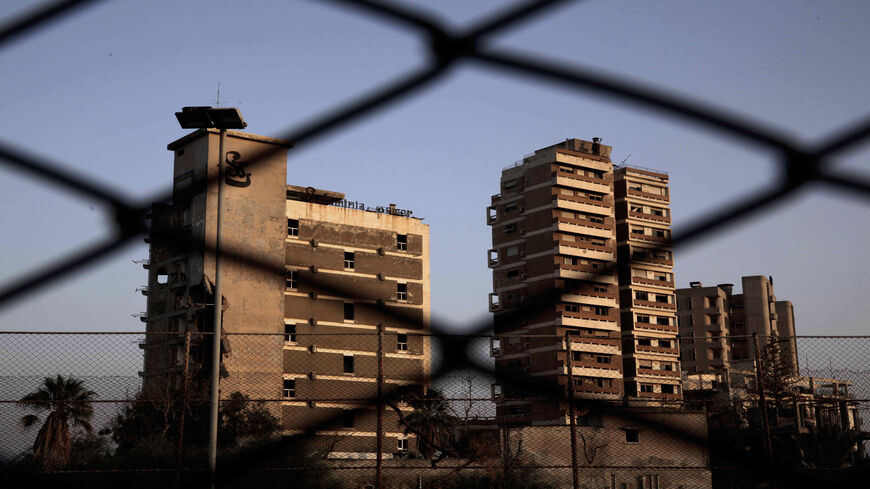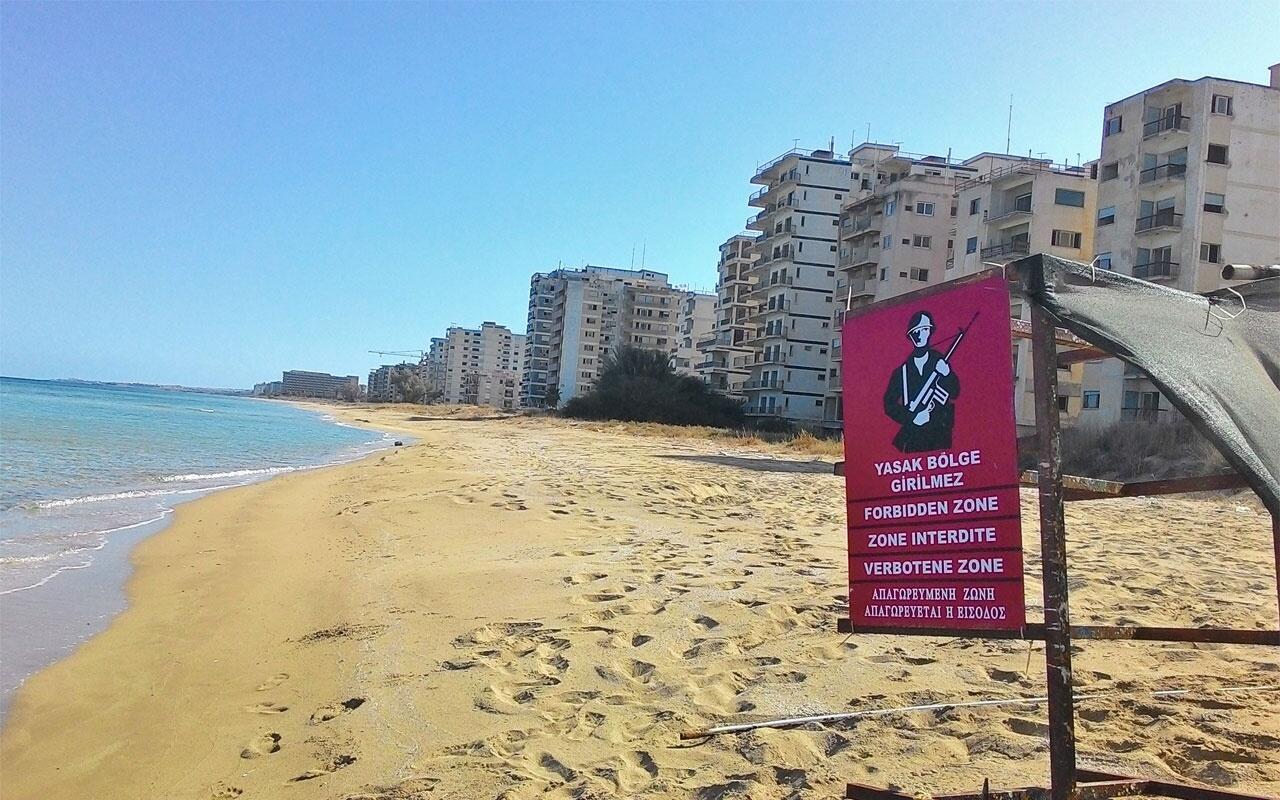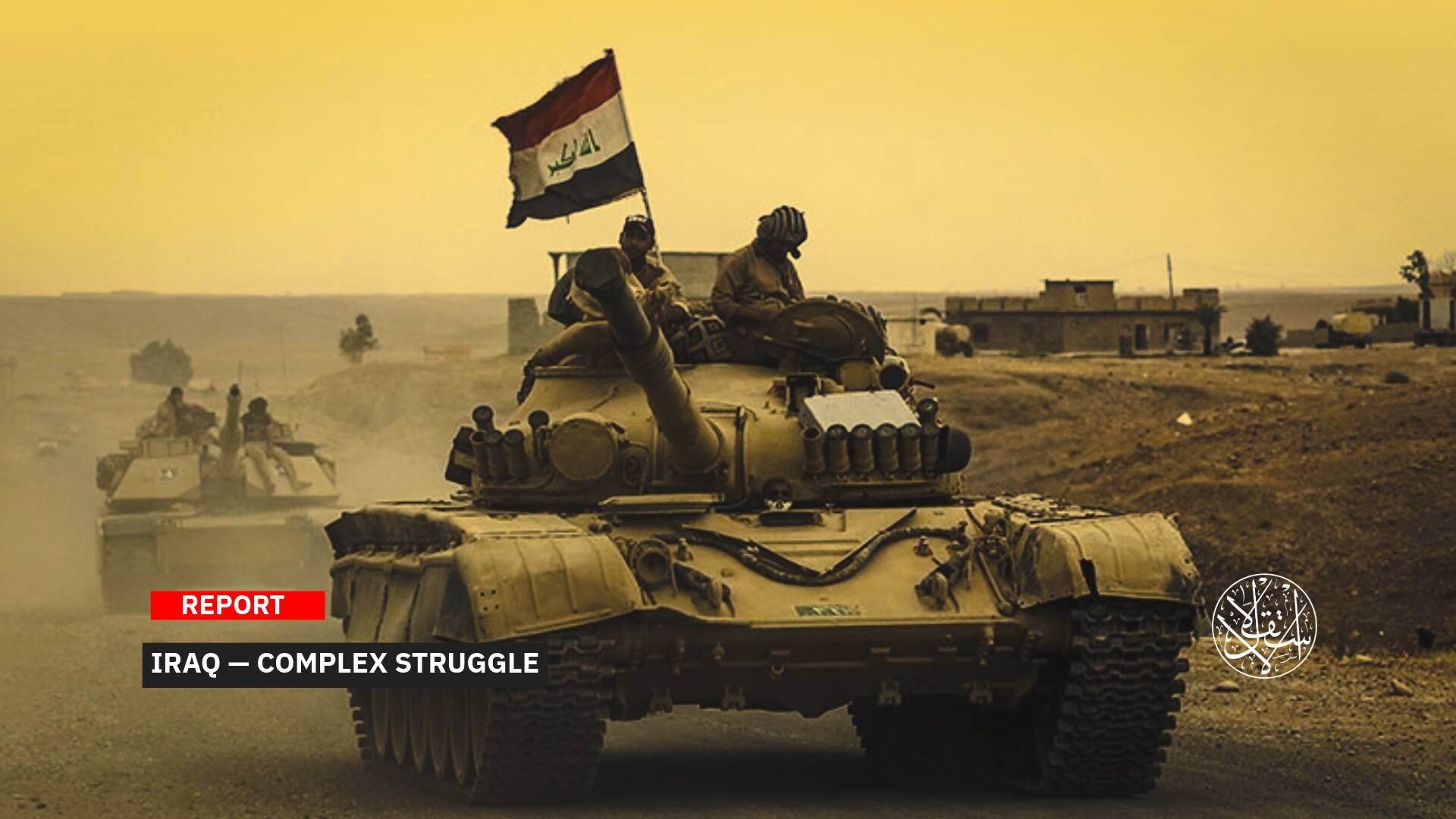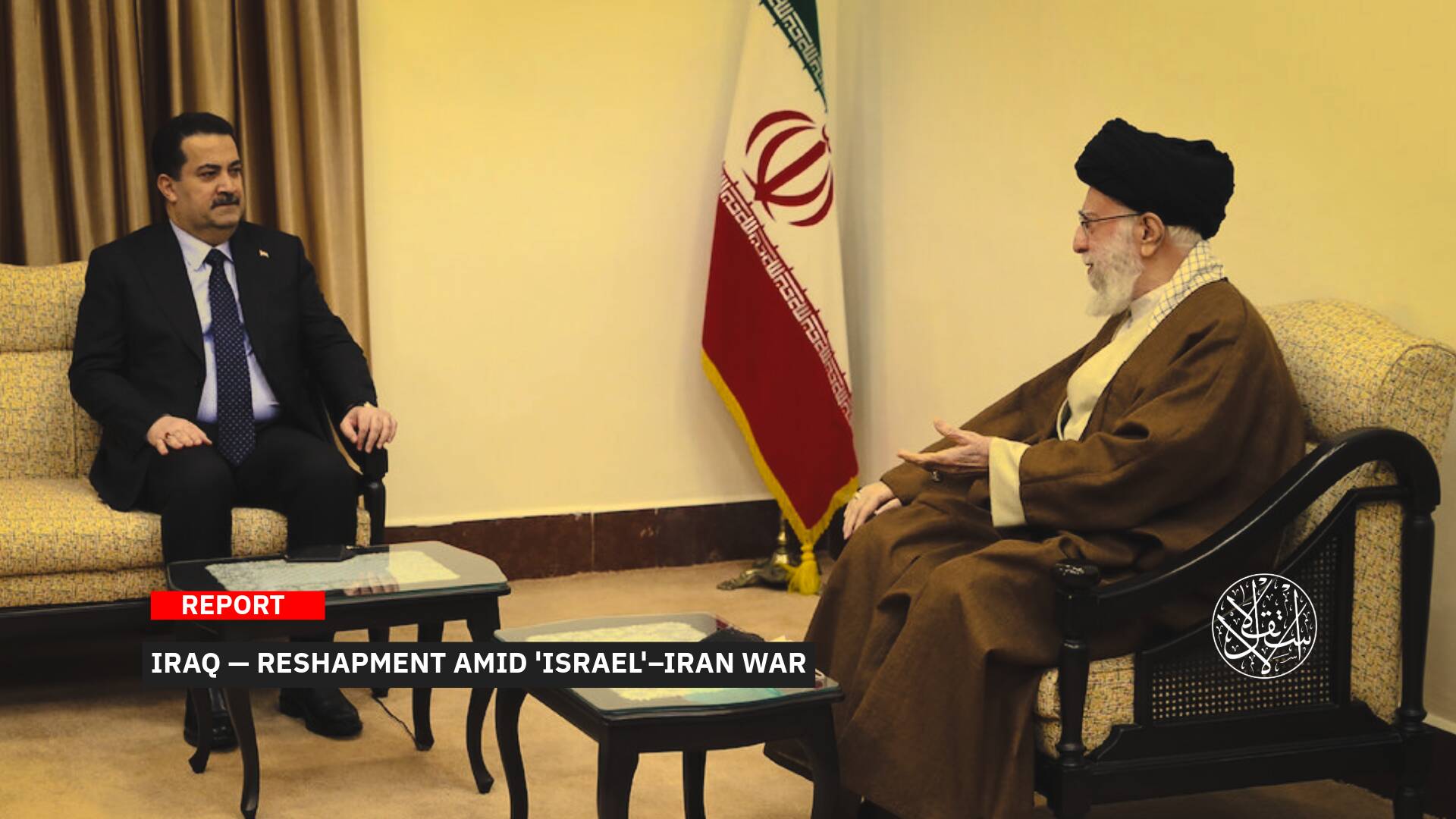Similar to Hagia Sophia; Why Did the Cypriot Marash Anger Egypt and Europe From Turkey?

“Good news” was given by Turkish President Recep Tayyip Erdogan during his visit to Turkish Cyprus, on July 20, 2021, announcing the return of the Varosha region (named Marash in Turkish) to life and opening it to tourism again, after being deserted since the Turkish military intervention in 1974.
During the visit, the President of Northern (Turkish) Cyprus, Ersin Tatar, announced that a 3.5 square kilometer section of the Varosha region had been militarily vacated by Turkey to bring it under civilian control.
The Turkish move comes after the region's status has been frozen since 1974, when Turkey intervened in the northern third of Cyprus in response to a coup attempt there to annex the island to Greece.
The island was divided on July 20, 1974, to a Turkish-Muslim northern section, and a Turkish Cypriot southern section, and only Turkey has recognized the "Muslim Republic of Northern Cyprus.”
Varosha, located on the line separating the two parts of Cyprus, was closed and frozen under agreements concluded with the Greek Cypriot side, in 1974.
The paradox here was represented in the anger of some Arab rulers more than the anger of the Europeans over the Turkish decision to revive a deserted city 46 years ago, and their joining of Greece and Greek Cyprus in criticizing Turkey.
This also reminds of their anger when Erdogan reopened the Hagia Sophia Mosque in June 2020, after it was closed for 86 years.
Then Erdogan sarcastically replied to them on July 12, 2020: "We would not be surprised if these people called later to turn the Kaaba, which is the oldest house of worship, or Al-Aqsa Mosque into a museum," but this time he ignored them.
Turkish Gift
Turkey's move in more than one thorny file, such as the opening of the Hagia Sophia Mosque, then Varosha, is a direct defiance to the West and the UN Security Council, indicating Ankara's transformation into a force in the international arena, due to its military and economic superiority.
This move raised the pace of increasing tension with Europe in general, and Greece and Cyprus, which are allied with Arab regimes that oppose the Arab revolutions, and allied with Israel against Turkey's projects in the Arab region.
The permanent members of the Security Council lobbied for a statement on July 23, 2021, denouncing "the plan of the leaders of Turkey and the Turkish Cyprus to reopen Varosha."

Turkey did not attach great importance to the UN resolution demanding its "immediate withdrawal,” but its foreign ministry said that it was "based on baseless allegations."
The Turkish Cypriots denied the intention of confiscating property in Varosha or housing settlers in it, contrary to property rights.
They stressed that since the announcement of October 7, 2020, part of it has been opened and transferred from a military area to a civilian area, with property owners only being invited to return.
The Security Council called for a settlement of the Cyprus conflict "on the basis of a federal system with two societies and two regions with political equality,” which Turkey rejects and demands two independent states.
The Turkish Foreign Ministry also responded to a statement issued by the European Union on July 27, 2021, rejecting the reopening of the region.
It said: The statements of the Europeans and other similar statements "reflect only the views of the Greek Cypriot side, and have no value or meaning for us."
It warned that the European Union must fulfill the promises it made to the Turkish Cypriot people after the Annan (former United Nations Secretary-General) plan in 2004 and "learn how to address the Turkish Republic of Northern Cyprus."
On July 23, 2021, US Secretary of State Anthony Blinken criticized what he called "the expansion plan to transfer control of a city that is a symbol of the division of Cyprus to the Turkish Cypriots."
He said: It is a violation of UN Security Council resolutions, a statement that Turkey has ignored.
The Mediterranean “Las Vegas”
Varosha is known as the "Pearl of Cyprus" and was a thriving tourist city with its hotels and clear waters until the Cyprus coup of July 1974.
It sought to annex it to Greece, but Turkey responded by intervening militarily to protect the Muslims of the island, and took control of nearly 40 percent of it.
"Varosha" means, "fortified place,” and it has its roots in the Turkish language "varos" which means "the suburb.”
The word entered the Turkish language through the Balkans in the Ottoman era, when most of the Balkans belonged to the Ottoman Empire.
Varosha was known as the "Las Vegas" of the Mediterranean, as it was the most important tourist and entertainment center not only for the island, but for the Mediterranean as a whole.

It was also a destination for the world's rich, European businessmen and famous movie names such as Marilyn Monroe, Sophia Loren, and Brigitte Bardot.
During the past 47 years, it has been emptied of its residents after declaring it a closed military zone since the end of the military operation on August 18, 1974, and only the Turkish army, some students and United Nations observers have returned to it.
Preventing the entry of those without a special card to the region, as well as foreign tourists, shifted the city’s label from “Las Vegas City” to the "ghost city,” except from the Marash Icona Church, which Turkey recently opened.
Ending Isolation
Before Varosha opening, most of its world-class hotels and celebrity homes and buildings were closed due to a dispute over ownership and negotiations over who would return the properties.
When its residents left it in 1974, they left their property, even the car showrooms have 1974 cars, as no one has ever installed them, says the “Northern Cyprus” website, October 7, 2020.
The Turkish move to restore its activity began early on October 7, 2020, when Ankara announced the reopening of the Varosha coast.
At that time, it was said: The plan was to open only about 1.5 kilometers of the seashore, not the interior area of 6 square kilometers, which includes hotels and residences.
That day, about 200 people roamed the open streets and the coastal part in the historic moment, according to Anadolu Agency on October 7, 2020.
At that time, Erdogan announced, "the beginning of a new era that everyone will benefit from," calling on those who own property rights there, whether Turkish or Roman Cypriots, to restore it, and gave a Turkish name to the city of "Varosha" which is "Maraş" in Turkish (pronounced Marash).
Erdogan's second visit, on July 23, 2021, opened an area equivalent to 3.5 kilometers from the Varosha tourist area in the city of Gazi Magossa.
Turkey’s Reasons
It is believed that Turkey's intention to end Varosha's isolation is due to several reasons, including the response to the laziness of the European Union and the United Nations towards negotiations to resolve the Cyprus issue and the ignoring of the Turkish Cypriots.
Turkey seeks to impose de facto policy, as Erdogan called for peace on the basis of two states, not a federation, as Europe and America demand.
As well as the general Turkish tendency to restore the glories of the past and the wave of neo-Ottomanism, after Ankara became a word heard in the world.
During his visit to Cyprus, Erdogan said, "We are determined to enter the year 2023, in which we celebrate the centenary of our republic as a strong and independent country that enjoys prosperity, economically, militarily, politically and diplomatically."
Among the reasons: the escalation of the struggle for influence between Turkey, Cyprus and Greece regarding territorial rights in the eastern Mediterranean.
In addition to this, "the quest to make Varosha a tourist attraction aims to empower the Turkish Cypriot economy," Erdogan said.
The city has 50 hotels, many resorts, high-rise buildings, hospitals and schools waiting to be brought back to life.

Negotiations to reunify the northern and southern parts of the island have been stalled since 2017, as the European Union and America reject a two-state solution to settle the conflict, while Erdogan is pressing for a two-state solution.
According to Security Council Resolution 550, any attempts to settle any part of Varosha for people other than its Greek Cypriot residents are unacceptable, and the resolution demands that the city be transferred to UN administration.
Egyptian-Israeli Concern
Just as Turkey's decision to open the Hagia Sophia mosque raised the concern of Arab countries, which sympathized with Western and Orthodox countries (Russia and Greece), just because of their hostility to Turkey, Arab political and media positions were issued rejecting the decision to open Varosha.
The Egyptian reaction was the most surprising, as the Egyptian Foreign Ministry expressed "deep concern about what was announced regarding changing the status of the Varosha region,” and considered it "contrary to the relevant Security Council resolutions."
This prompted Egyptians who were waiting for a similar statement from the Ministry of Foreign Affairs about "deep concern about the Ethiopian the second filling of the Renaissance Dam” to mock the Egyptian Foreign Ministry's statement.
Egypt's response indicates the worsening relations with Turkey again, and also revealed Cairo's anger, dissatisfaction and escalation after Turkey refused to respond to its demands in several files, including the media appearance of opponents from Turkey, as well as the Libyan file.
Egypt wants the withdrawal of Turkish forces from Libya within the plan of the so-called "exiting all mercenaries" approved by the "Berlin 2" conference, but Ankara refuses to link its legitimate presence to an agreement with the Tripoli government, with the presence of foreign mercenaries who were brought in with Emirati money.
The expert in strategic consulting, Mohamed Suleiman, told Monitor on July 27, 2021: The Egyptian position on Varosha "is due to its agreement with Cyprus regarding Cairo's commitment to a federal state there for two regions and two sects."
He added, "Egypt views the partial reopening of Varosha as a new Turkish step to test the limits of regional powers in the Mediterranean."
Israel also expressed "concern" about the Turkish position in Varosha, and described the Turkish moves as "provocative,” declaring its solidarity and full support for Cyprus.
There is a Cypriot, Greek, Egyptian, Emirati, Israeli alliance against Turkey in the eastern Mediterranean. They all seek to block Ankara's movements in vital regional files, including the Mediterranean gas, Libya and others.
On April 15, 2021, a quadripartite forum was launched in Tel Aviv at the level of the foreign ministers of Israel, Greece, Cyprus and the UAE, "focusing on economic and security issues."
Egypt and Cyprus signed the maritime delimitation agreement in December 2013, and a similar agreement with Greece in August 2020, and Ankara believes that the latter is located in the area of Turkey's continental shelf.
Sources
- Turkish plan to reopen Cyprus ghost town strains rapprochement with Egypt Read more: https://www.al-monitor.com/originals/2021/07/turkish-plan-reopen-cyprus-ghost-town-strains-rapprochement-egypt#ixzz72fKW6uKd
- مرعش.. لؤلؤة قبرص التي جعلها الصراع مدينة أشباح تستعيد رونقها بدعم تركي
- "فاروشا".. حلقة جديدة من التوتر بين تركيا والاتحاد الأوروبي؟
- ردا على إردوغان.. مجلس الأمن يدعو لـ"نظام فدرالي" في قبرص











